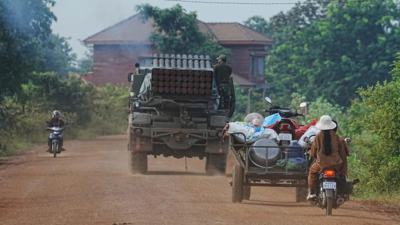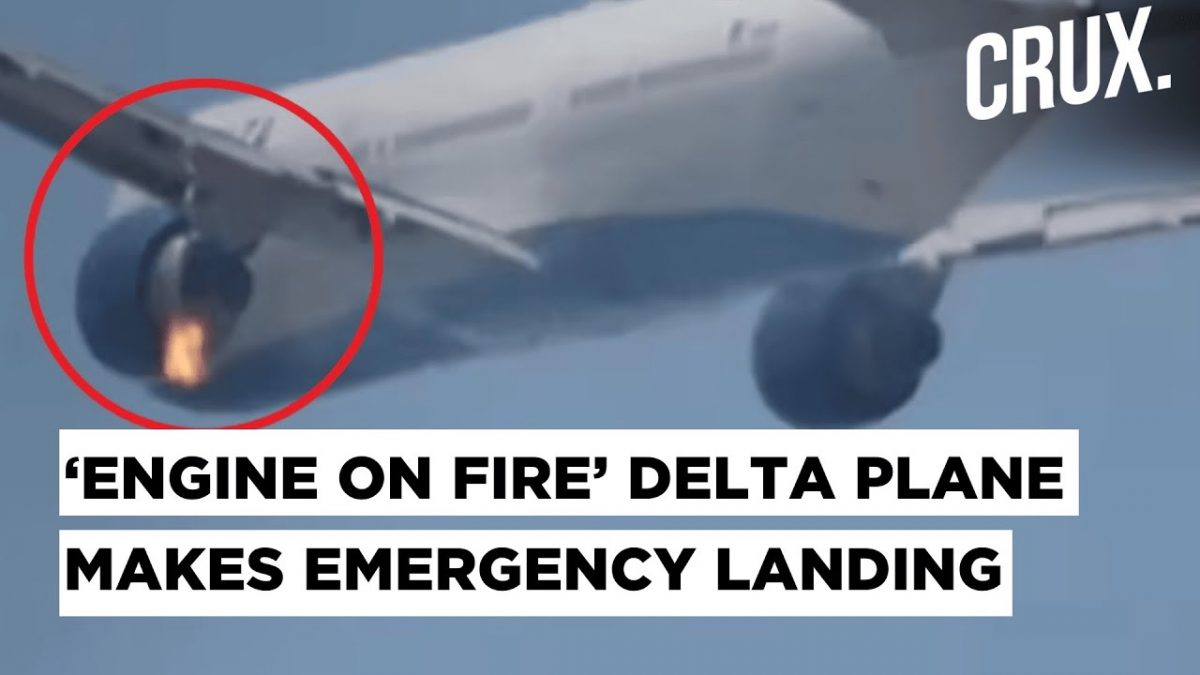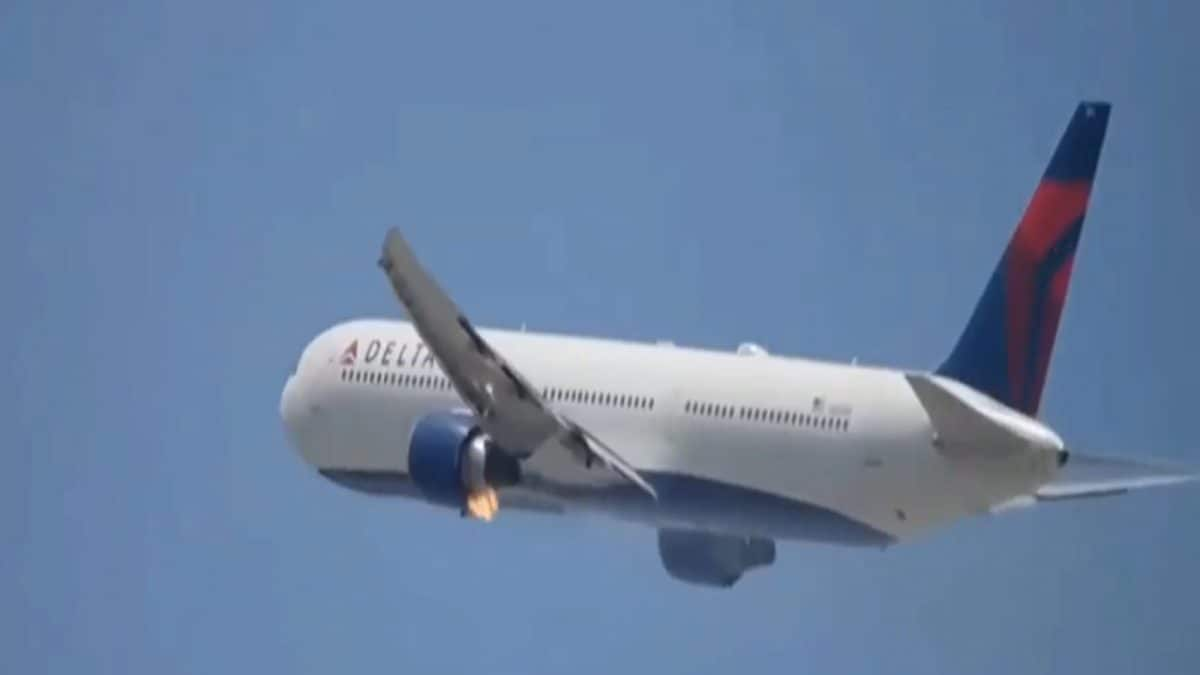ARTICLE AD BOX

Representative image (AP)
Welcome back to another edition of My Take 5, your weekly round-up of top international news. We have made it to the 50th edition of this weekly wrap and I could not be happier. I thank all the readers who have stayed with me throughout the journey so far.
Given the occasion, we have a jumbo edition for you this time! This week we are covering the sudden outbreak of conflict between Thailand and Cambodia, the protests in Ukraine that exemplify the country’s civil society vibrancy, Estonia and Italy’s boycott of artistes linked to Russia, the India-UK FTA, and Morocco’s growing support on Moroccan Sahara. Also, don’t miss the bonus section on the viral Ukrainian phrase “Don’t push the horses!” So, let’s get to it:
Thailand-Cambodia conflict
Military skirmishes erupted between Thailand and Cambodia in what is being described as the worst conflict between the two Southeast Asian countries in a decade.
More than 150,000 people have been evacuated on both sides with 33 dead in the clashes so far. The latest round of hostilities began after Thai soldiers were injured in a landmine blast in the disputed border area. The latter has long been contested between Bangkok and Phenom Penh and lies at the trijunction of Thailand, Laos and Cambodia.
The contested area also hosts several religiously significant shrines like the Preah Vihear Temple which reportedly has taken damage in these clashes.
The backstory to the conflict is that in May Thai and Cambodian troops engaged in a brief clash in which a Cambodian soldier was killed. Then Thai PM, Paetongtarn Shinawatra, had called long-time Cambodian leader Hun Sen to de-escalate the situation. However, that backfired after a recording of the conversation was leaked wherein Paetongtarn was heard calling Hun Sen “uncle” and criticising a senior Thai military officer.
This led to outrage in Thailand and suspension of Paetongtarn from her post. Now it appears that the Thai and Cambodian militaries are driving the conflict. The geopolitical twist is that Cambodia is aligned with China and Thailand is a treaty ally of the US. And according to reports, Cambodian forces are using Russian and Chinese weapons, while the Thai army is well-equipped with US platforms like F-16 fighters. Therefore, after the Ukraine war, this is again another battlefield where Chinese-Russian weapons are squaring off against American-Westerns weapons.
But what is curious here is the timing of the Thai-Cambodian conflict.
While it’s still not clear who provoked whom with both sides blaming each other, a third theatre of conflict after Ukraine and Gaza that pits US and the West against China and Russia (the Dragon-Bear partnership) shows that the world may be inching towards another Cold War type situation with proxy conflicts dotting the map. That is indeed a worrisome prospect and undermines the global economy and peace.
Protests in Ukraine
In the first protests in Ukraine since the beginning of the full-scale war in 2022, thousands took to the streets this week to oppose a new government bill that curtails the independence of the two main anti-corruption bodies – Specialised Anti-Corruption Prosecutor's Office (SAPO) and the National Anti-Corruption Bureau of Ukraine (NABU)– by subjugating them to supervision of the country’s prosecutor general, who is a political appointee.
As the bill was approved by Ukraine’s parliament and signed into law by President Zelenskyy, young Ukrainians took to the streets to make their displeasure heard. According to them, the new law was aimed at curtailing the anti-corruption bodies to shield high-ranking officials within or close to the Presidential Office. But Zelenskyy justified the new law’s adoption on grounds that the two anti-corruption bodies needed to be shieled from Russian influence in the midst of the war.
In fact, the law’s passage was preceded by raids at the two anti-corruption agencies and some arrests. This is indeed a complicated issue and comes at a delicate time for Ukraine. Having talked to Ukrainians on both sides of the debate, my analysis is that each party has a point. First, there is no denying that Ukraine has a problem with corruption. In fact, Zelenskyy came to power on the anti-corruption platform and had promised to clean the swamp.
Ukraine’s corruption legacy goes back to the Soviet Union. A corrupt system of patronage was inherited by Ukraine when it became independent in 1991.
In fact, this has animated Ukrainian politics for three decades. Therefore, when SAPO and NABU were created after the Euromaidan revolution in 2014, it was seen as an attempt to break with the past and move towards greater integration with the EU. Second, after the full-scale war began, it was clear that pro-Russian saboteurs existed within the Ukrainian system.
They were working for Moscow and passing on critical information to Russian forces. Ukrainian security agencies have identified and arrested many such individuals over the last three years. The infiltration runs deep and wide. Therefore, when Zelenskyy says he wanted to shield the anti-corruption bodies from Russian influence, he has a point.
However, the new law and the speed with which it was implemented became a classic case of throwing the baby out with the bathwater.
There are ways to ensure that Ukraine’s agencies are protected from infiltration without taking away their independence. Therefore, when Zelenskyy signed the new law, he acted in haste. But why did he do so? Well, it can be that he was not advised properly by his own people. It also could be that he didn’t realise the gravity of the law he was enacting. After all, he is a war-time Ukrainian president who is laser-focussed on defending his country.
That is his No.1 priority. Zelenskyy has literally saved Ukraine from total collapse over the last three years. Thankfully, the protests have made him realise his mistake and he has submitted a new draft bill to the Ukrainian Parliament that he says addresses both independence of the anti-corruption bodies and the issue of Russian influence. It could become law by the end of this month. If that happens everyone will breathe a sigh of relief.
Protests at a time of war can be misconstrued as disunity. Plus, Ukraine’s anti-corruption fight is a critical factor in its future membership of the EU.
Europeans were very concerned about the new law undermining Ukraine’s membership track. Finally, the most important thing is that the protests show how vibrant and democratic Ukraine’s civil society is. That they came out to protest against the government even in the middle of the war.
This is unimaginable in Russia. And therein lies the difference between the two sides. Zelenskyy was forced to respond to the protests and make corrections. The episode also shows how Ukrainians see their government. Just because they are in the middle of a war, they won’t let their government off the hook or allow it to ride roughshod over hard-won rights and legal gains.
Zelenskyy is a great war-time leader. But he still serves the people of Ukraine.
The latter just reinforced that equation.
Estonia, Italy reject Russia-linked artistes
Due to the war in Ukraine, Ukrainians have long called for banning Russian artistes and athletes whom they see as part of Kremlin’s propaganda machinery. They argue that these artistes and athletes are being used by Moscow to whitewash its aggression against Ukraine. Therefore, as a matter of principle, many Western nations have boycotted Russian artistes and forced Russian athletes to compete under the neutral flag.
The past week, Estonia’s National Opera ended its cooperation with Argentine opera director Jose Cura for his links to Russia. The National Opera cancelled his show scheduled for September saying that it could not feature artistes that don’t share its values. Similarly, a controversy had erupted over the scheduled concert by Russian artiste Valery Gergiev at Italy’s Royal Palace of Caserta. Gergiev is a vocal backer of Putin and director of Russia’s Bolshoi and Mariinsky theatres.
His scheduled performance had led to a heated debate within Italy, was slammed by Ukraine and even saw Russia’s exiled opposition call for a boycott. Finally, the Royal Palace cancelled the concert.
True, there is a big debate over whether Russian artistes and sportsmen should be banned as long as the war in Ukraine endures. Some believe that culture and sports should be kept out of politics. But countries who are boycotting Russian athletes and artistes are doing so to register their objection to a Russian system that is carrying out aggression against Ukraine.
Of course, the approach may change if the war stops and there is peace in Ukraine.
But right now, particularly in Europe, there is a deep sentiment that Russian culture/sports cannot go hand-in-hand with bombs. Culture and sports cannot be used to normalise the destruction that is taking place in Ukraine.
India-UK FTA
The much-anticipated India-UK FTA was inked this week. The deal provides for a somewhat liberalised visa regime for Indian professionals and duty-free access to some lines of Indian products.
For example, 75,000 Indian professionals are exempted from UK social security payment for 3 years. Indian professionals can work in 35 UK sectors for 24 months, even without a UK office. More than 1800 chefs, yoga experts and musicians can work in the UK each year.
Further, Indian textile, apparel, leather and footwear, gems and jewellery, generic drugs and medical equipment will benefit from reduced to zero tariffs on exports to the UK.
Also, 95% of Indian agriculture produce and 99% of marine exports will see zero-duty entry to the UK market. All of this is welcome. But India-UK trade volumes hover around the $21.34 billion mark. That’s relatively modest. The big FTA that India should look forward to is with the US. But even before that, there is a need to reorient our mindset towards trade and cast off protectionism, except, perhaps, for a very few strategic sectors.
The reason is that competition is the only way Indian companies and manufacturers will become world class.
The strategy of building high walls to keep competition out is anyway meaningless in a world with global supply changes. What we need are efficiency and greater diffusion of technology. And that won’t happen unless we compete.
Portugal’s support for Morocco’s Sahara autonomy plan
Portugal has expressed its support for Morocco’s autonomy plan for the Moroccan Sahara.
This builds on the growing momentum in recent years that has seen multiple countries support Rabat’s position on the Moroccan Sahara issue. The latter, it will be recalled, is a leftover baggage from Morocco’s colonial history. The Moroccan Sahara issue came to be manipulated by different interest groups to strategically hem in Morocco.
In fact, I have compared the Moroccan Sahara issue to India’s Kashmir issue. Both New Delhi and Rabat have had to contend with external forces – Pakistan in India’s case and Algeria in Morocco’s case – trying to subvert its sovereignty.
But thanks to Morocco’s steadfast approach, it has managed to increasingly convince the international community, including the US, France and UK. This is in large measure due to the leadership of Morocco’s King Mohammed VI, whose anniversary of accession to the throne will be observed next week. It is under King Mohammed that Morocco adopted a vigorous foreign policy, returned to the African Union, reached out to all major powers, and is championing a new model of cooperation for Africa where African solutions are sought for African problems.
This has positioned Morocco as a force for stability in Africa.
And there is a growing list of countries that recognise this dynamic. India, which is also boosting ties with Morocco, should consider taking the leap and open a consulate in the Moroccan Sahara.
Bonus:
Finally, the bonus section this week is dedicated to Ukrainian boxing great Oleksandr Usyk, who recently became a two-time undisputed heavyweight champion by knocking out Britain’s Daniel Dubois.
But it’s what he said in a pre-match press conference that went viral: “Don’t push the horses”. It was a strange idiom and people were searching for a translator. But the way Usyk said it in his own quirky way, made it cool.
Actually, Usyk was translating from a Ukrainian saying that means ,“Don’t rush the horses” or slow down. So the actual English equivalent will be “Hold your horses”. Anyway, Usyk’s victory has turned the phrase into a viral internet sensation. So here I bring to you another Ukrainian sports legend, Olympic gold medallist high jumper Yaroslava Mahuchikh, doing a social media video to “Don’t push the horses”. Enjoy!



.png)
.png)
.png)
















 5 hours ago
8
5 hours ago
8








 English (US) ·
English (US) ·